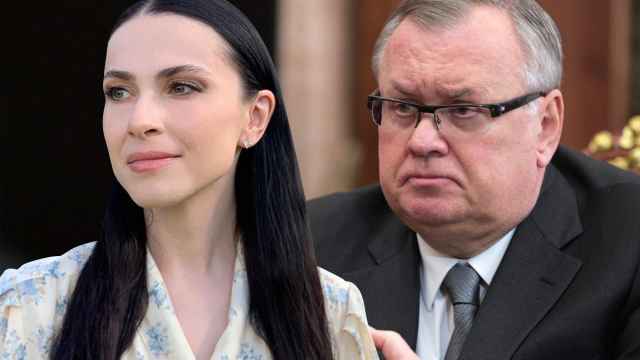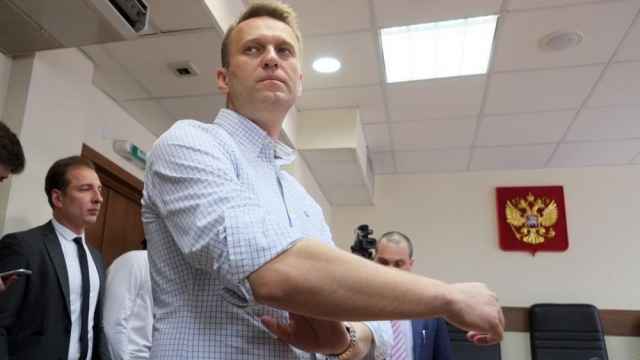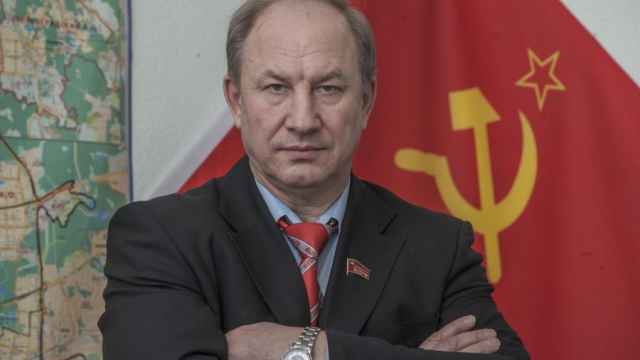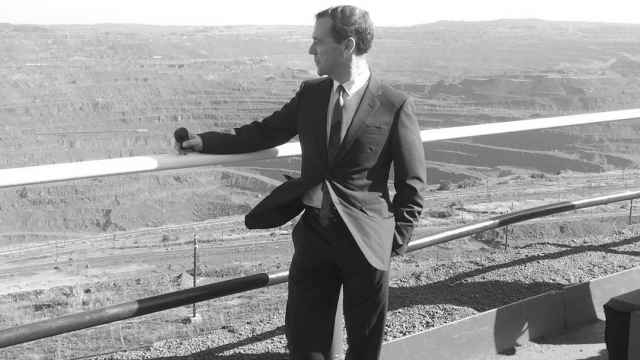Earlier this month, a lecturer at a university in Krasnoyarsk says he was forced to resign because he showed his students a new film by Alexei Navalny that accuses Prime Minister Dmitry Medvedev of controlling a vast and illicit real estate empire. In an interview on Wednesday with the independent TV network Dozhd, Mikhail Konstantinov explained how he lost his job as a lecturer of philosophy and culture at Siberian Federal University after he screened the documentary on March 14.
Konstantinov says the motivation for stepping outside his curriculum to show a political film was the miserable state of his classroom — particularly the windows, which the school boards up and cheaply insulates during the winter. “I started wondering where all the money was going. This is a federal university, after all,” he told Dozhd.
“When Navalny’s film came out, I got the idea to show it to my students, because the film shows where all the money is going,” Konstantinov said.
The teacher says he wasn’t trying to brainwash his class by screening the movie, which makes serious accusations against Russia’s sitting prime minister. “It’s not like students were sitting there nodding their heads the whole time. That money is being looted upset everyone, but far from everyone was a Navalny supporter,” he told Dozhd, explaining that he stopped the video periodically to let the students discuss specific allegations.
This wasn’t the first time Konstantinov raised politics in his class. He told Dozhd that he and his students have debated Moscow’s relations with Kiev, the annexation of Crimea, and the downing of Malaysia Airlines Flight 17 — all enormously charged topics in Russia.
In the interview, Konstantinov admitted that Navalny’s film has nothing to do with his class on the history of world culture. “Technically, whoever filed the complaint against me is right: I used class time for something that wasn’t in the curriculum.”
But Konstantinov insists that he was forced to resign because someone specifically didn’t like Alexei Navalny’s politics. “If I’d spent a lecture telling the students about, let’s say, the animal kingdom of the Siberian taiga — another topic that falls outside world culture — it’s unlikely that I would have been reprimanded and fired.
Konstantinov says he doesn’t know who exactly filed the complaint (he suspects a student’s parent), but a week after he screened Navalny’s film he was summoned by the university's chancellor, who rebuked him for the act, and then asked him to resign, “or else.”
Four hours later, Konstantinov no longer worked at Siberian Federal University. He says he’s received messages of support from current and former students, though none of his colleagues has contacted him since he left the school. His primary concern now, he told Dozhd, is finding a new job.
A Message from The Moscow Times:
Dear readers,
We are facing unprecedented challenges. Russia's Prosecutor General's Office has designated The Moscow Times as an "undesirable" organization, criminalizing our work and putting our staff at risk of prosecution. This follows our earlier unjust labeling as a "foreign agent."
These actions are direct attempts to silence independent journalism in Russia. The authorities claim our work "discredits the decisions of the Russian leadership." We see things differently: we strive to provide accurate, unbiased reporting on Russia.
We, the journalists of The Moscow Times, refuse to be silenced. But to continue our work, we need your help.
Your support, no matter how small, makes a world of difference. If you can, please support us monthly starting from just $2. It's quick to set up, and every contribution makes a significant impact.
By supporting The Moscow Times, you're defending open, independent journalism in the face of repression. Thank you for standing with us.
Remind me later.






